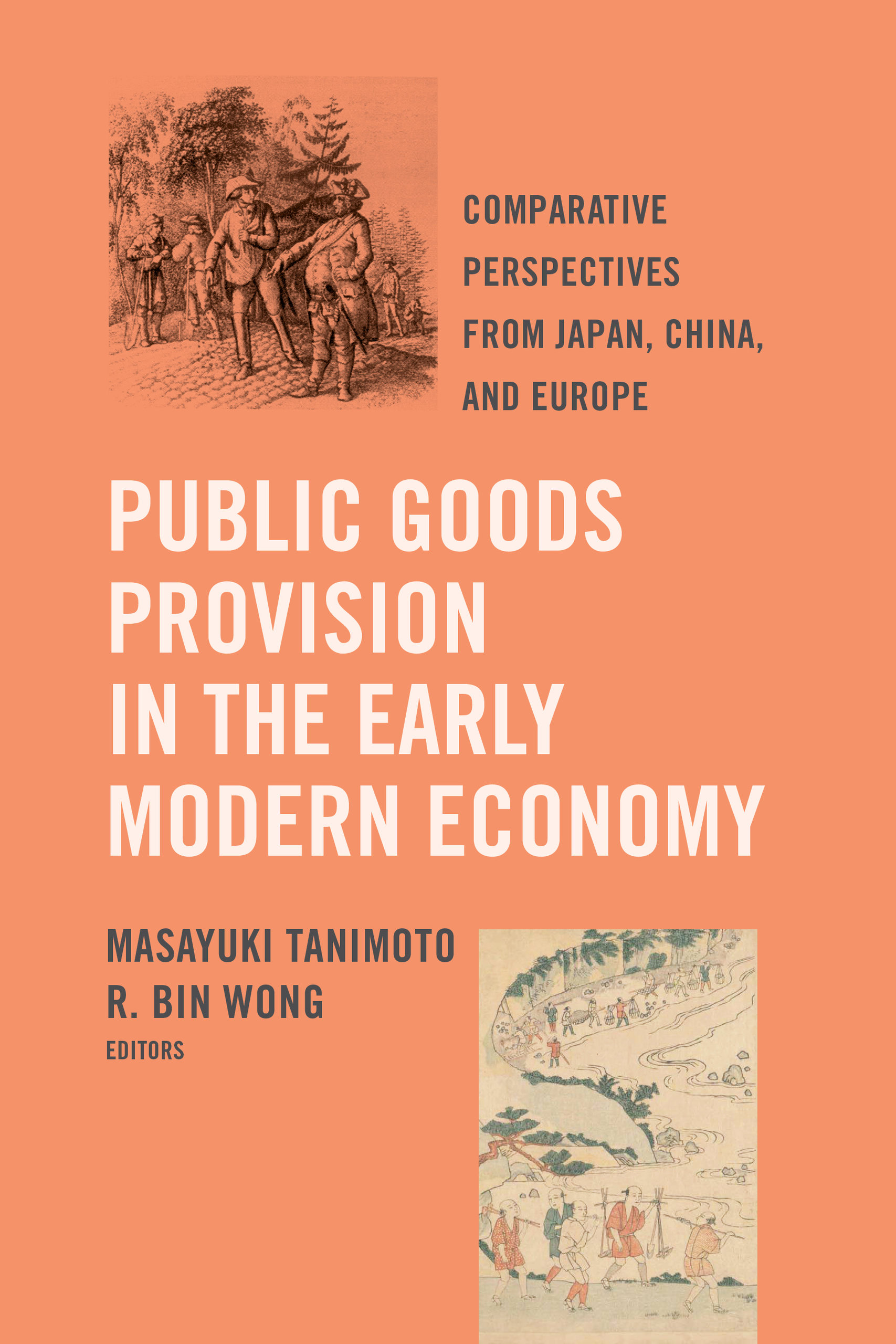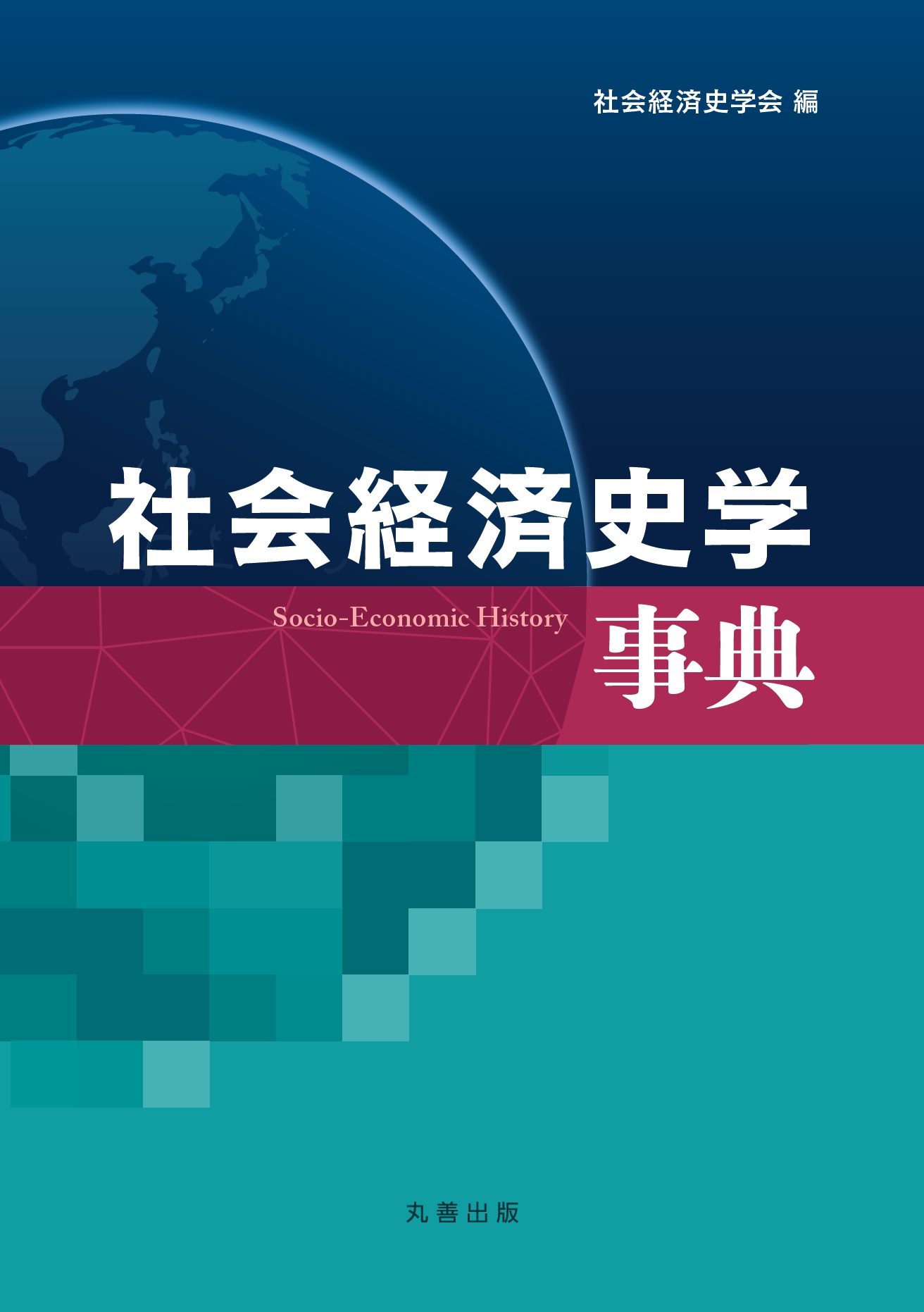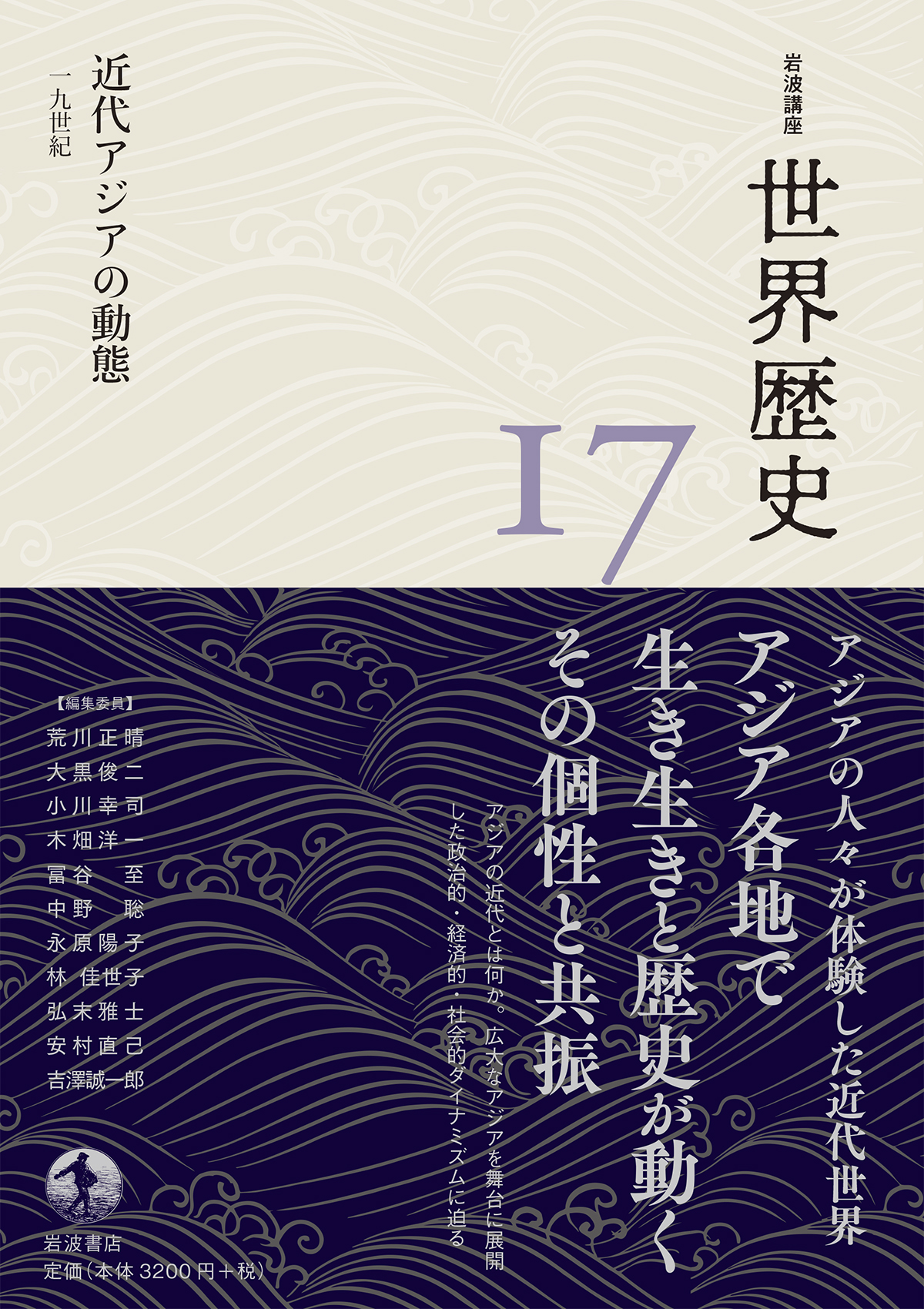
書籍名
Philip E. Lilienthal Imprint in Asian Studies Public Goods Provision in the Early Modern Economy Comparative Perspectives from Japan, China and Europe
判型など
348ぺージ、ペーパーバック
言語
英語
発行年月日
2019年1月
ISBN コード
9780520303652
出版社
University of California Press
出版社URL
学内図書館貸出状況(OPAC)
英語版ページ指定
歴史を通じて人々は、経済生活を維持し再生産するために、様々なやり方で財やサービスを手に入れてきました。その有力な手段が市場取引であり、実際、経済発展に注目する歴史研究では、成長の起動力として市場経済化に分析の力点が置かれています。しかし経済生活の維持・再生産には、市場と個人の関係性の中では処理されにくい領域が少なくありません。それらの領域ではどのような対応がなされ、それが当該の経済社会の構造や政治・社会制度とどのような関係にあったのか。本書はこの問題を、「公共財」概念をベースとして、その供給の担い手がどのような存在であり、そこにはどのような論理が働いていたのかを、比較史の手法を通じて検討した国際共同研究です。
本書でいうところの「公共財」とは、人々が実際に経済生活を営む際に入手・享受した財・サービスで、市場取引、あるいは「私的関係」―家族・親族関係とともに領主・臣民関係なども含む―の中で手に入れたもの以外を指しています。「公共財」はそもそも経済学の術語であり、非排除性 (需要者を特定できない) 非競合性(便益が需要者間で競合しない) の性質をもち、それゆえ、たとえば市場取引において供給者が適切な対価を得られない (そのために供給が過小になる) 財・サービスを意味しています。しかし本書では、財・サービスの性質自体が考察の対象ではないために、この定義を歴史的現実に合わせ緩めて適用しました。また国家・政府が供給する財・サービスに「公共」的な性格を見出す議論がありますが、本書では「公共財」が主とした国家・政府によって供給されること自体、歴史的な現象であると捉えています。この視角は、経済学や歴史学の分野に根強い、国家と市場を二分法的に捉える考え方を相対化することにも繋がります。
本書が主として対象とするのは、いわゆる「近世 (early modern)」で、日本でいえば17-19世紀のいわゆる江戸時代です。世界史的にみて近世は、市場経済の発達と国家形成の時期であるといわれますが、そこではまた、上記で述べた「私的関係」も人々の生活に大きな意義を有していました。本書では、Part Iで近世日本の公共財供給の特徴を検討し、続くPart II-IVで、貧困救済と飢饉への対応、社会資本の整備、そして森林管理の個別の3つの領域の考察へと進みます。それぞれの領域では、日本の事例を軸に中国やヨーロッパ (プロシア・イギリス) との比較が行われています。比較史のベンチマーク (参照基準) として、近世日本を置いていることは本書の大きな特徴ですが、それは「先進」ヨーロッパからの距離を測ることに注力しがちな、これまでの比較史研究に対する方法的な見直しでもあります。それを可能とした背景には、村方史料をはじめとする一次史料に基礎づけられた、日本近世史の豊富な研究蓄積があり、そこから「村」と地域社会の存在が、公共財供給をめぐる比較史の論点として浮かび上がってきました。本書の成果が、グローバル化・市場経済化の下でも必ずしも一方向に収斂しない現代の国家・社会の在り方を、歴史の深みから理解する手がかりとなることを期待しています。
(紹介文執筆者: 経済学研究科・経済学部 教授 谷本 雅之 / 2020)
本の目次
(Masayuki Tanimoto)
Part I: Public Finance and Regional Society in Early Modern Japan
Part I Introduction (Masayuki Tanimoto)
Ch.2 From “feudal” lords to local notables: The role of regional society in public goods provision from early modern to modern Japan (Masayuki Tanimoto)
Ch.3 Samurai and peasants in the civil administration of early modern Japan (Kenichiro Aratake)
Ch.4 Outsourcing the lord’s finance: the origin of local public finance in early modern Japan (Kazuho Sakai)
Part II: Coping with Poverty and Famine
Part II Introduction (Mitsuo Kinoshita)
Ch.5 Sanctions, targetism, and village autonomy: poor relief in early modern rural Japan (Mitsuo Kinoshita)
Ch.6 Coping with risk in the seventeenth century: the first age of the English Old Poor Law: a regional study (Jonathan Healey)
Ch.7 Coping with poverty in rural Brandenburg: the role of lords and state in the late eighteenth century (Takashi Iida)
Ch.8 Coping with poverty and famine: material welfare, public goods, and Chinese approaches to governance (R. Bin Wong)
Part III: Building the Infrastructure
Part III Introduction (Masayuki Tanimoto)
Ch.9 The development of civil engineering projects and village communities in seventeenth to nineteenth century Japan (Junichi Kanzaka)
Ch.10 Rulers and ruled in flood protection during the eighteenth century: the Prussian example (Heinrich Kaak)
Ch.11 Infrastructure maintenance in the Jifu region, Beijing metropolitan region during the eighteenth century (Takehiko To)
Ch.12 Provided for public welfare: traffic infrastructure and "the bonum commune topos" with examples from fifteenth and sixteenth century Brandenburg Electorate (Sascha Bütow)
Part IV: Managing the Forest
Part IV Introduction (Takashi Iida)
Ch.13 Lords’ forestry for people’s basic needs: evidence from Prussia’s royal domains
and forests during the eighteenth and nineteenth centuries (Takashi Iida)
Ch.14 The role of villagers in domain and state forest management: Japan’s path from Tokugawa period to the early twentieth century (Takeshi Aoki)
Ch.15 Forests as commons in early modern China: an analysis of legal cases (Yoshiyuki Aihara)
Ch.16 Public goods and economy in the early modern era: new perspectives on modern
economies and contemporary environmental concerns (R. Bin Wong)
関連情報
Open Accessのスキームでの出版。無料ダウンロード可能。
https://www.luminosoa.org/site/books/10.1525/luminos.63/
書評:
Melanie Meng Xue "Masayuki Tanimoto and R. Bin Wong (eds.), Public goods provision in the early modern economy: comparative perspectives from Japan, China, and Europe" (Economic History Review, volume 73, issue 1, pages 335-336, February 2020)
https://onlinelibrary.wiley.com/doi/full/10.1111/ehr.12951
"With new global evidence that goes well beyond the timeworn topics of taxation and military spending, Public Goods Provision will make historians and social scientists rethink the development of fiscal systems, the history of public spending, and the long run pattern of political and economic development."—Philip T. Hoffman, author of Why Did Europe Conquer the World?
“This pioneering volume is a comparative study of the role of government in the premodern economy in Europe and in Asia. There is much original and valuable material on whether and how governments provided public goods in these very different societies.”—Gregory Clark, author of The Son Also Rises: Surnames and the History of Social Mobility



 書籍検索
書籍検索


 eBook
eBook


